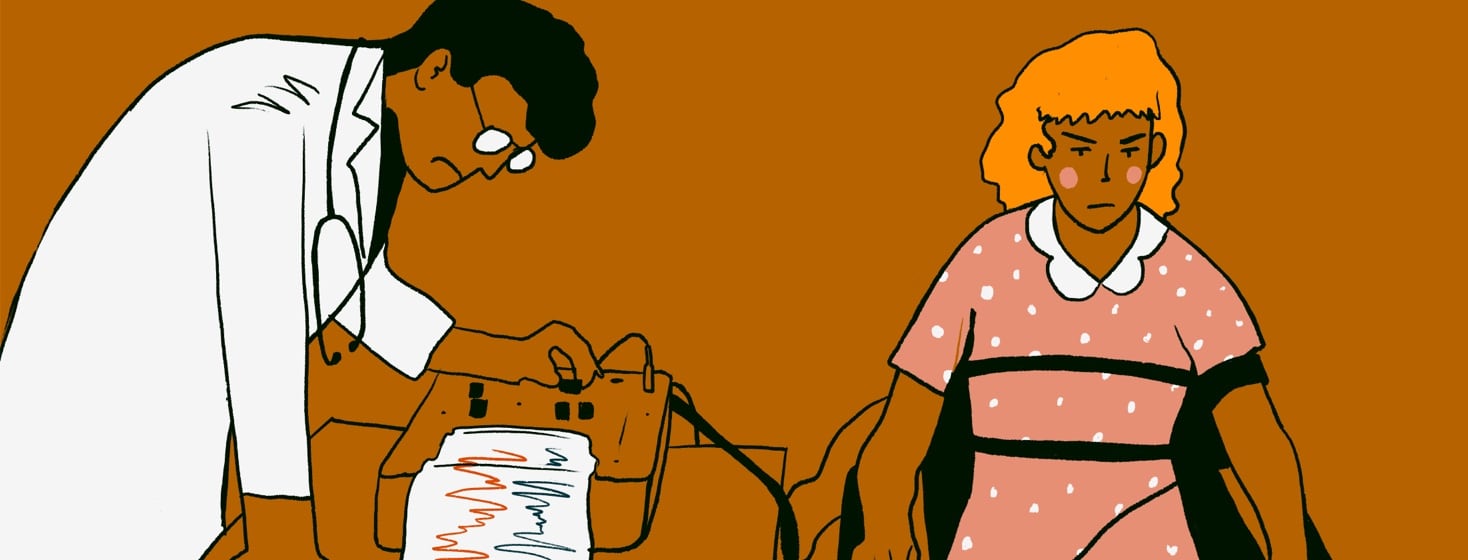There Is No Secondary Gain in Chronic Pain
Secondary gain is a psychoanalytic term for the advantages someone with pain has because of their chronic pain. The idea is that some people exaggerate their symptoms, consciously or unconsciously, in order to continue to get the benefits that come along with being ill.
Examples would be extra attention, sympathy, not having to work, or not having normal responsibilities. It’s also a term that makes my blood boil and has since I learned about it when I was a young teen. To me, it’s a concept that helps doctors to dismiss patients and ignore their Hippocratic oath.
How I first came across the term secondary gain
When I was young and desperate to learn anything I could about juvenile rheumatoid arthritis, I was relegated to the library - this was long before the internet came on the scene. I would beg my Dad to take me to the University where he worked and then spend hours doing “research” in the library, perusing medical journals.
I was in disbelief
One day I came upon a journal article listing all the ways that people in pain used “secondary gains” to their benefit and how some people were fooling their doctors into thinking they were in pain so that they could continue having the advantages that being ill gave them. As I kept reading in disbelief, I decided that whoever wrote the article needed a vacation, because no thinking person would ever think staying sick was advantageous in any way.
Sadly, this term continued to haunt me. In Occupational Therapy school, I again heard about the concept, and I’ve heard it discussed in multiple professional courses that I’ve taken over the years about pain.
Negative bias around chronic pain
Only recently has the new science about pain helped to start to change thinking about a chronic pain personality and secondary gain. But, the word hasn’t reached many doctors who don’t specialize in pain treatment. So people in pain are still needing to combat negative bias about their pain experience.
Pain is a subjective experience sometimes not associated with tissue damage and influenced by physical, emotional, and social factors. The minute you say the word subjective to any doctor in a medical context, they are going to start doubting because they are so convinced that what they do is a hard science. In defense of doctors, I think that given the enormity of their job, one would have to believe what they are doing is backed by more than subjective opinion.
How secondary gain comes into play
But the truth is that much of medicine is at best a guess, and that is especially true when you are treating chronic pain - something that we are still learning about on a daily basis. As a patient, another hard truth is that when doctors can’t figure out why you are feeling the way you are, you often get blamed or accused of making it up which, in my opinion, is how the concept of secondary gain became popular in the first place.
Bias and secondary gain makes it hard to talk about pain
As people with rheumatoid arthritis, we usually have pain that is easily understood given the inflammatory process behind it. And yet the number of people with rheumatoid arthritis, myself included, who have encountered disbelief and judgment from healthcare workers when we talk honestly about our pain, is astoundingly high.
I've downplayed my pain for most of my life
For me, this is why I have downplayed my pain, not exaggerated it, in front of healthcare workers for most of my life. Haunted by the idea that I’ll be seen as a malingerer, I’ve put on the brave face instead of being honest more times than I want to admit. The fact that for most of my life, I decided to suffer enormously instead of opening a discussion about my pain and possible ideas to alleviate it with my doctors - only because I was scared of how they would react - makes me really sad for myself.
Personally, I think that doctors need to do a much better job of listening to their patients. If they did, they would quickly understand that the “gains” people may be getting from being in pain don’t hold a candle to the severely negative impacts on every aspect of their life.

Join the conversation